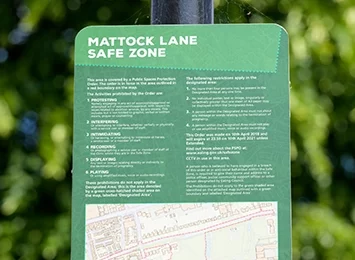London, Thursday, 25th November 2021
This International Day for the Elimination of Violence Against Women, MSI UK Advocacy and Public Affairs Advisor Louise McCudden reflects on the fact that no strategy to tackle gendered violence can be taken seriously without a commitment to reproductive choice.
Gender-based violence cannot be tackled without reproductive rights
As an unapologetically pro-choice global abortion and contraception provider, it is perhaps not surprising to hear us say that no strategy to tackle gendered violence can be taken seriously without a commitment to reproductive choice. But it’s true.
One form of gender-based violence is reproductive coercion. Not only is reproductive coercion a form of violence against women which is often minimised (or in some cases not even recognised as violence) but it also underpins many of the other ways in which gender power dynamics are upheld.
Research published by the British Medical Journal (BMJ) Sexual and Reproductive Health in 2019 found that one in four women accessing a sexual health clinic have experienced some form of reproductive coercion.
Reproductive coercion can take many forms. It can involve ‘sabotaging’ or lying about contraception, coercing somebody in or out of a pregnancy, or forcing either the termination of or the continuation of a pregnancy. It is more common to be pressured out of an abortion than into one; both are examples of reproductive coercion.
Some coercive behaviours are alarmingly common, like pressuring a sexual partner into sex without condoms, or the practice which some rather euphemistically refer to as “stealthing”, which involves removing a condom during sex without your partner’s knowledge. (The latter is, in fact, rape.) Reproductive coercion, such as refusing to let a partner end a pregnancy, is often used to keep that partner vulnerable or dependent and stop them leaving the relationship. Reproductive coercion is most common as a form of partner abuse but sometimes families or even peer groups engage in reproductive coercion as well. It is usually, but not always, perpetrated by men against women.
The study published in the BMJ found that many of those who had experienced reproductive coercion did not recognise those behaviours as such. According to YouGov research commissioned by the End Violence Against Women Coalition in 2018, 40% of people think “it is never or usually not rape to remove a condom without a partner’s consent.”
“The threat of gender-based violence is used to dictate behavioural norms to women and girls.”
Reproductive coercion, like most gendered violence, is not simply about the act itself or the distress it can cause to the survivor. The reason we speak about violence against women and girls as a gendered issue in the first place is not because violence doesn’t happen to men as well (it absolutely does), but because of the way that violence against women and girls can function as a means of control.
The threat of gender-based violence is used to dictate behavioural norms to women and girls. We are warned about everything from how we dress to whether we should walk home alone. Violence against women is a gendered phenomenon not because men never experience rape or assault, but because boys are not raised to believe they must compromise their freedoms in exchange for the right to feel safe, or to be taken seriously if they experience harm. Or rather, when individual boys are taught this, it isn’t because they are boys. (It can be because of other aspects of their identity, such as their race, or sexual orientation, in conjunction with the fact that they are boys.)
Anti-abortion groups love to steal the language of gender equality. They are simply ‘informing women’, they say, when they harass our clients outside clinics. They are simply ‘concerned’ about the potential for the coercion of the most vulnerable, they insist, while faking calls to our telemedicine service to stir up panic about a service which has been repeatedly found to be perfectly safe.
They like to express concern about ‘forced abortion’ without setting it into its wider context of reproductive coercion. Policy solutions that address ‘forced abortion’ in isolation often come in the form of greater barriers to abortion access.
“The opposite of reproductive coercion is reproductive choice, reproductive healthcare, and reproductive rights.”
No matter what the anti-abortion groups say, the opposite of reproductive coercion is reproductive choice, reproductive healthcare, and reproductive rights. As a pro-choice organisation, we fight against all forms of reproductive coercion. Anti-abortion groups only care about the minority who are coerced into having an abortion. They do not care, or even pretend to care about those coerced into continuing with a pregnancy. Indeed, many of them actively participate in that coercion themselves.
Reproductive coercion doesn’t exist in isolation and cannot be addressed in isolation. It underpins gender-based violence, and gender inequality. After all, pregnancy is one of the most dangerous times for abused partners. The ability to decide whether or not we wish to become or remain pregnant is fundamental to women’s ability to work, socialise, have sex, study, and generally participate in life in the ways that are essential for gender equality.
At the heart of reproductive coercion is a desire to control; a mistrust of women, a lack of respect for autonomy, and a profoundly held entitlement to women’s bodies. To tackle it in any meaningful way, we must address not only coercive practices themselves, but we must work together to give women and girls real tools for addressing these underlying causes. That means fighting, proactively, for reproductive rights.
To read more from Louise and find out about our advocacy work, click on the links below:











































